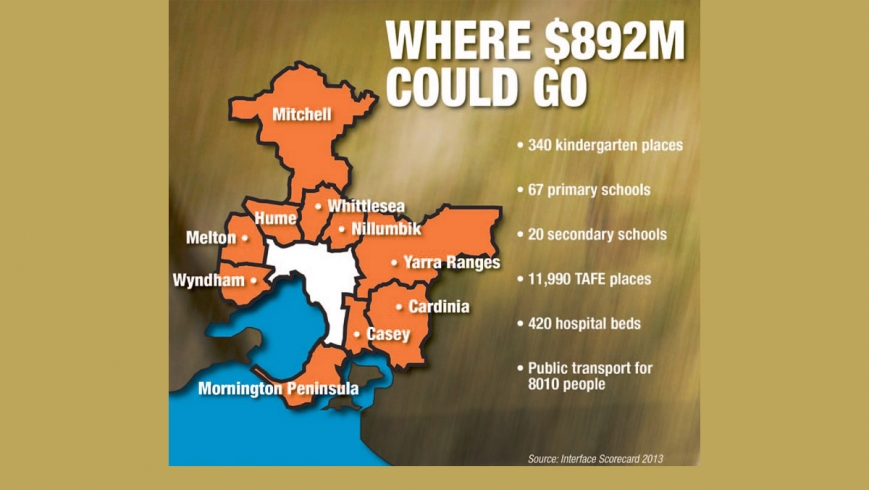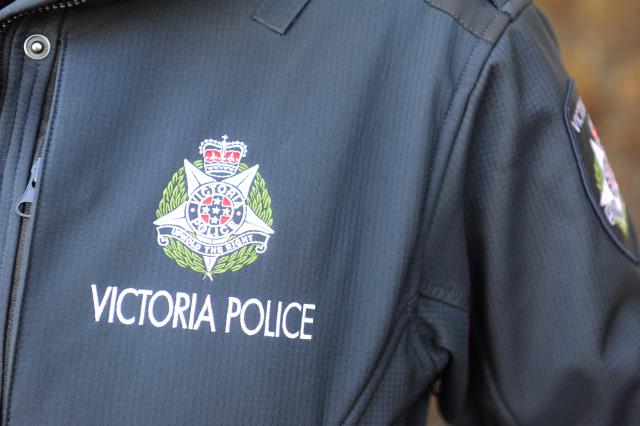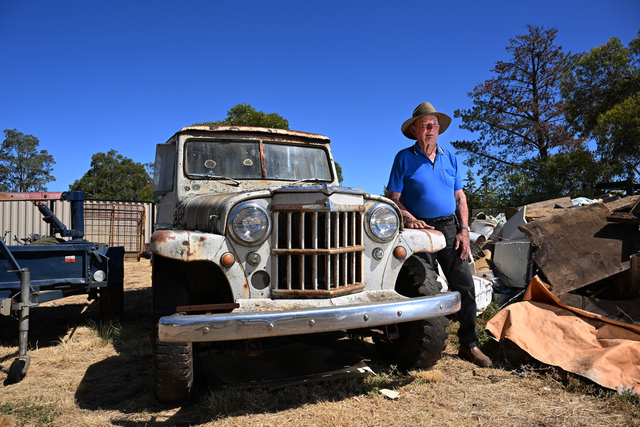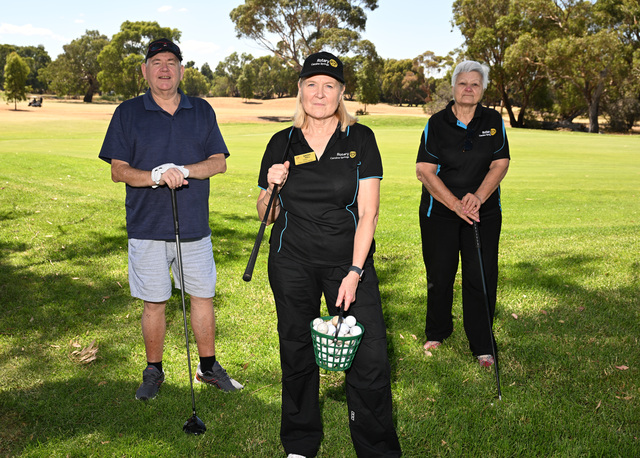GROWTH areas such as Melton and Caroline Springs need an extra $892 million from the state government to fund critical infrastructure and improve residents’ quality of life, a report reveals.
Interface Scorecard 2013, commissioned by 10 councils that form a buffer ring around metropolitan Melbourne, shows Melton City has the fewest state government-funded projects compared with other interface councils.
The scorecard shows May’s state budget has compounded the disadvantage suffered by people living in growth municipalities.
Of the $1.4 billion allocated to interface councils over four years, Melton received 3 per cent ($41.5 million) to fund two projects, the Western Highway realignment from Melton to Bacchus Marsh and a Living Libraries infrastructure grant.
Interface councils, including Melton, Wyndham and Hume, say the government has failed to address gaps in service delivery and infrastructure in their areas compared with parts of metropolitan Melbourne.
The councils released the One Melbourne or Two? report in February, warning the government that growth areas needed $9.8 billion for infrastructure needs.
The councils have asked the government to establish a fund similar to the Regional Growth Fund, which is a pool of $1 billion to be spent over eight years on services for municipalities in country Victoria.
Buffer areas receive $938 million over four years in the budget for schools, health care and public transport but the councils estimate they will need another $892 million.
Melton mayor Kathy Majdlik said the government was ignoring service and infrastructure shortfalls in growth areas. “Areas which require urgent attention in the municipality include the provision of increased health services, including community health, mental health, the number of GPs and a public hospital for Melton,” she said.
“The government has indicated sites for schools in other areas of the municipality; however, land has not been secured. These areas include Eynesbury, Botanica Springs, Atherstone and Taylors Hill West.”
Interface councils spokesman and Mornington Peninsula councillor David Gibb said growth area councils received 18 per cent of the last budget’s allocated investments despite accounting for 50 per cent of the state’s growth in the past five years.
State Treasurer Michael O’Brien said the budget funded schools, hospitals, police stations, roads and transport that benefitted the areas.

















